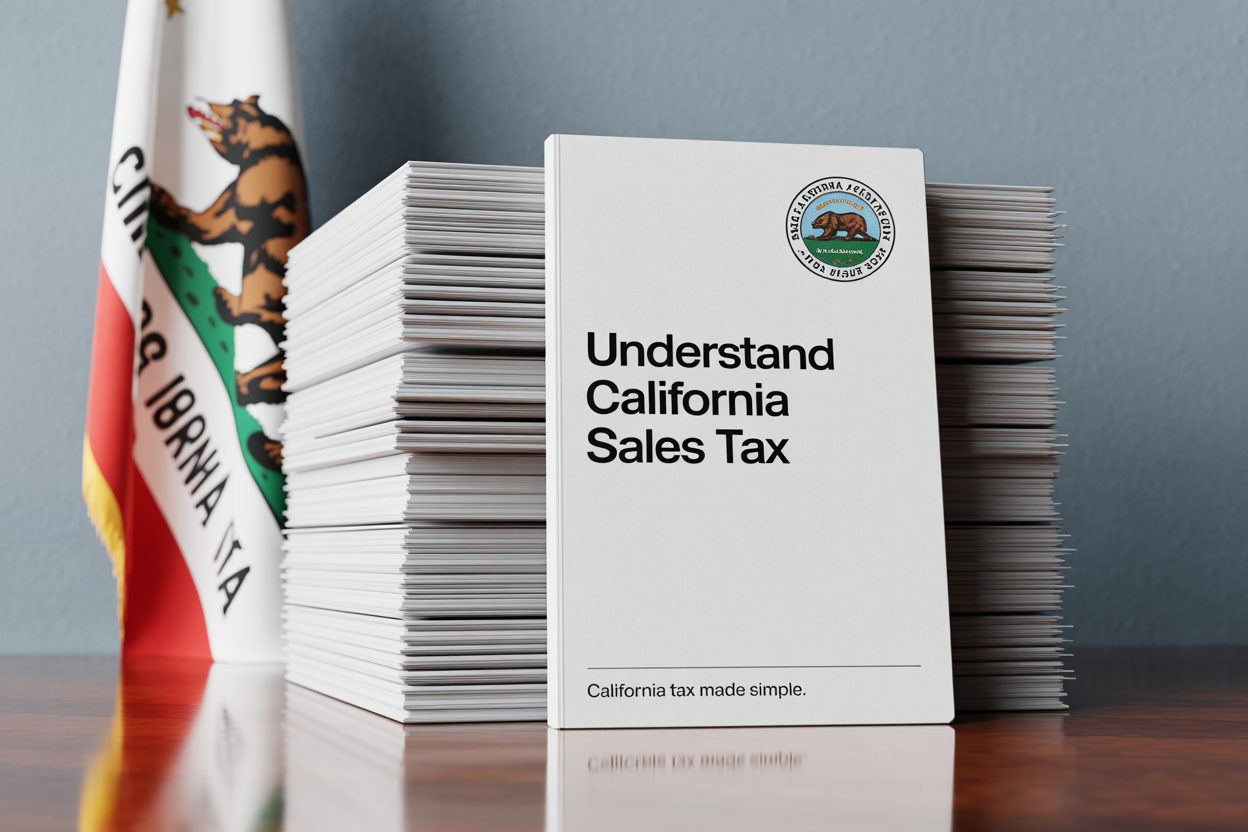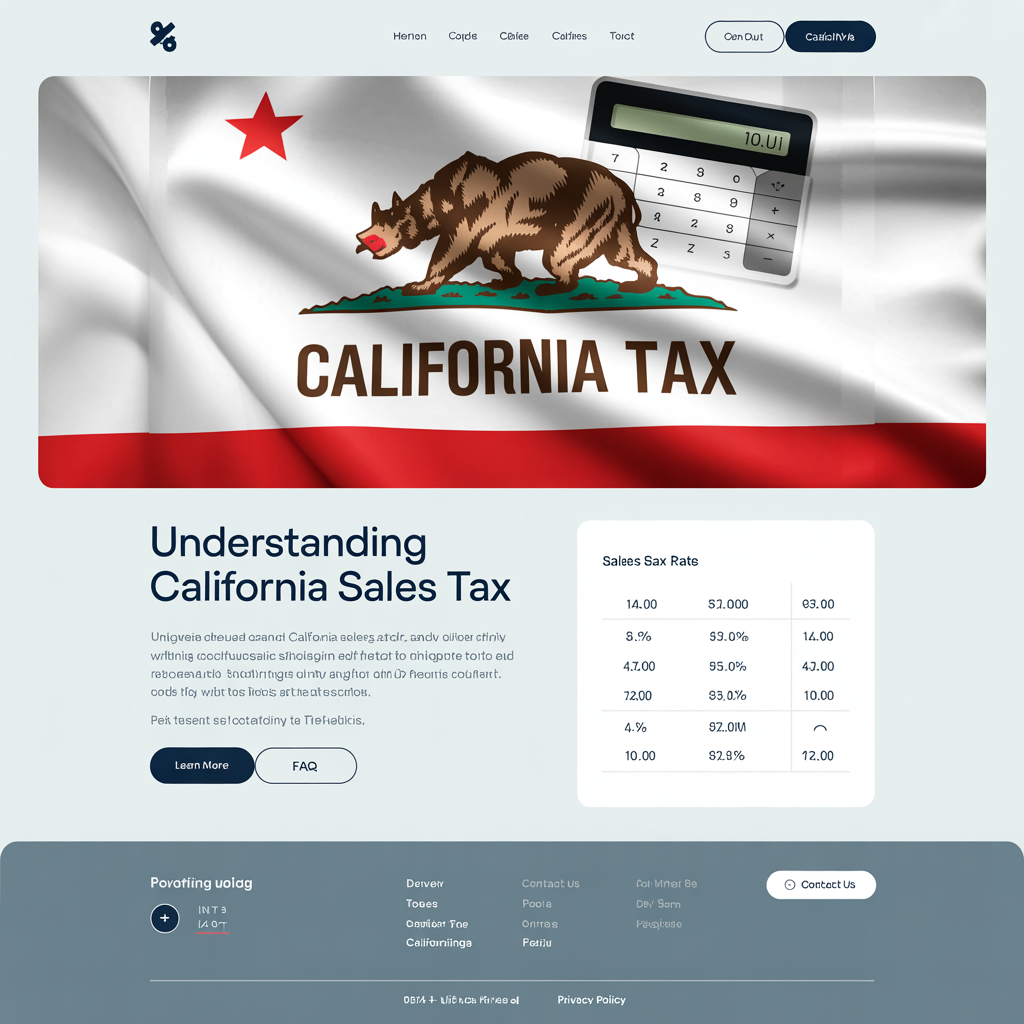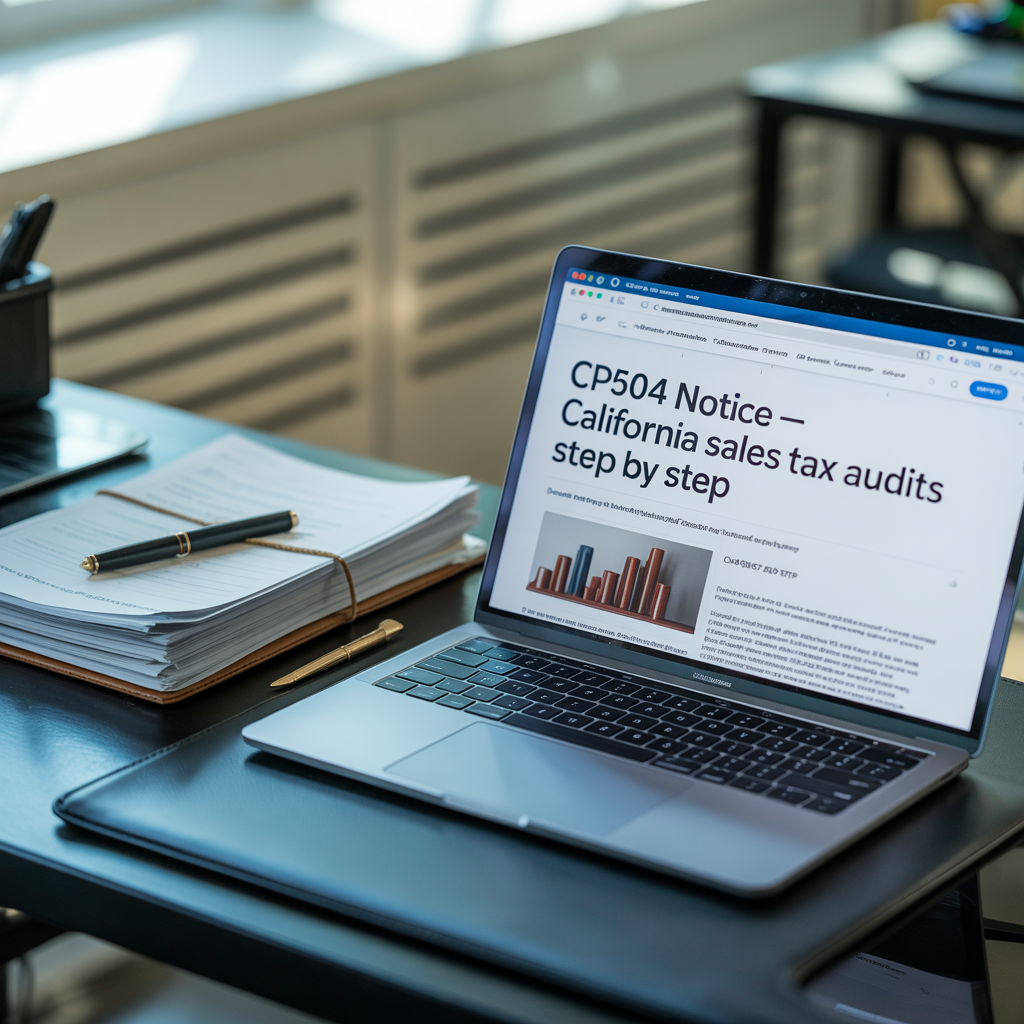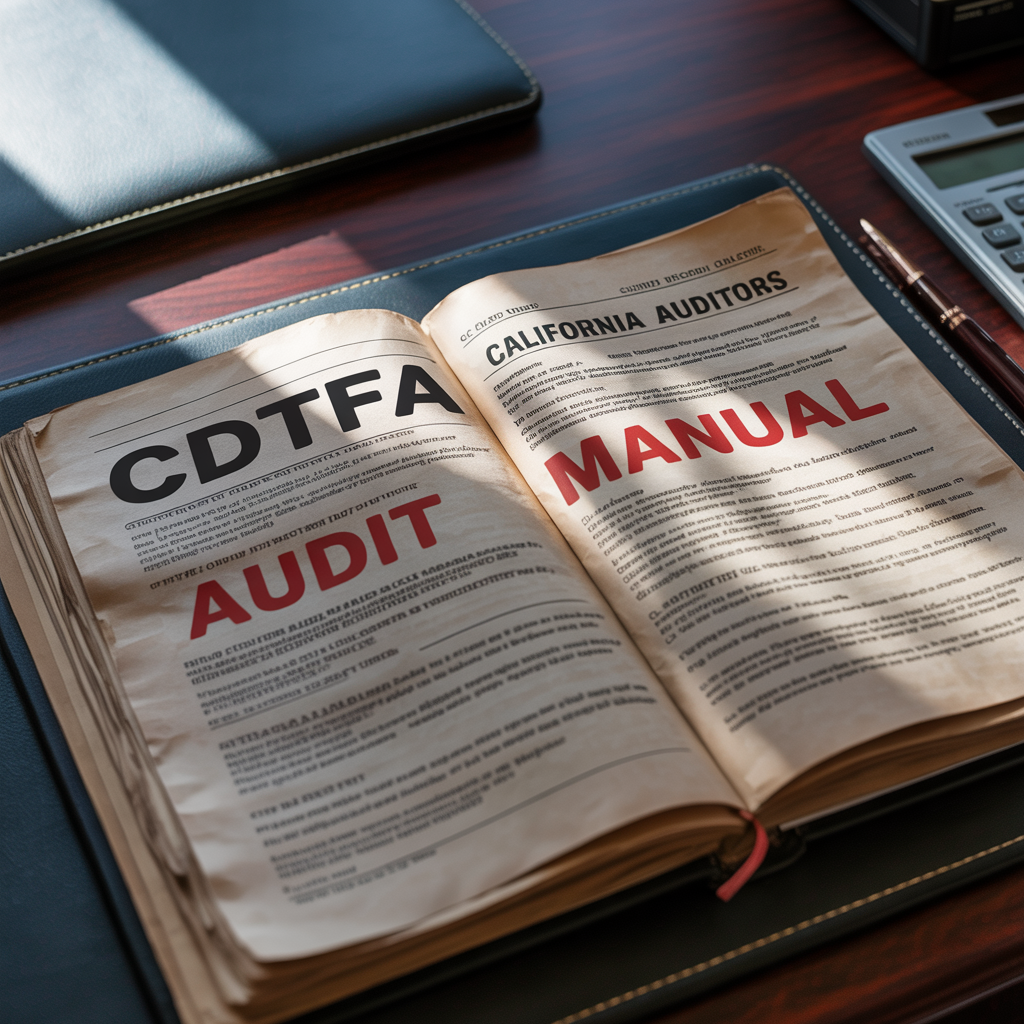What to Expect in a California CDTFA Sales Tax Audit
How to Prepare, Respond, and Protect Your Business
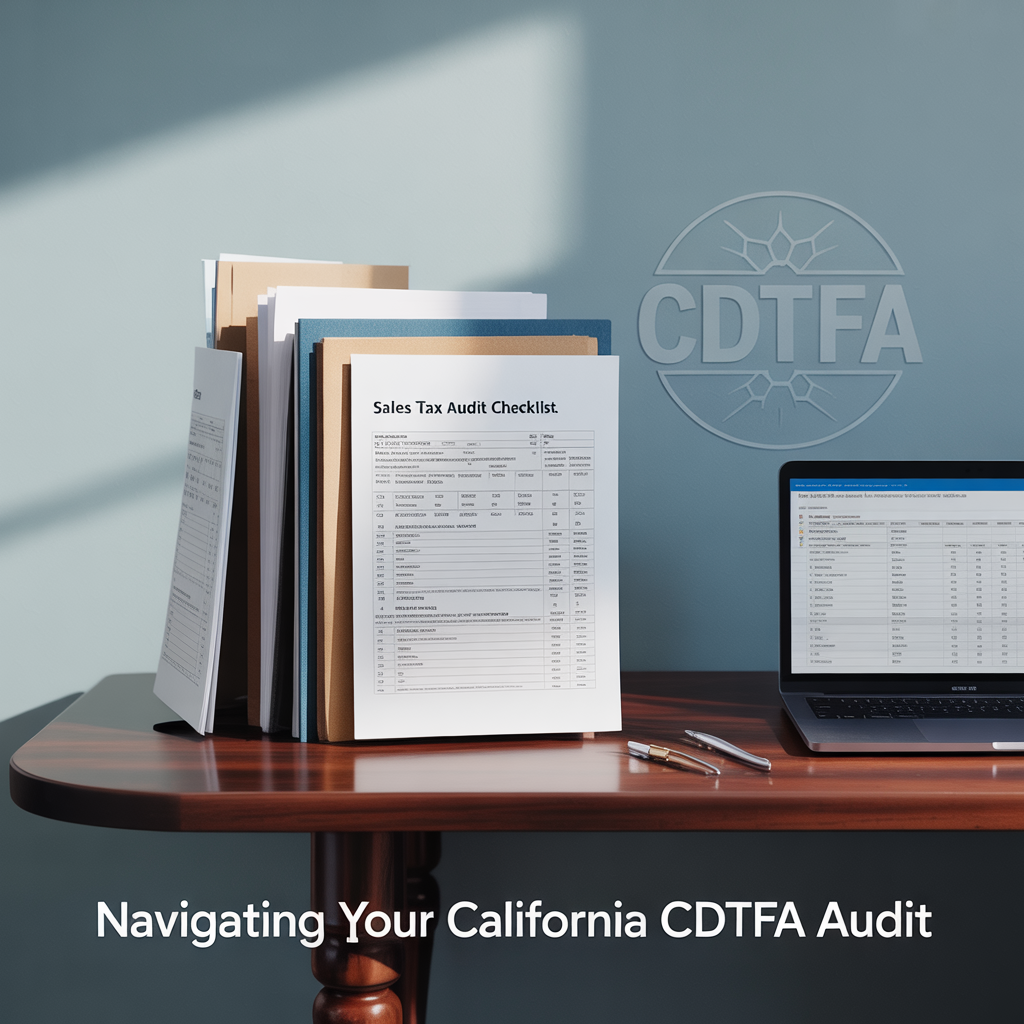
If you’re facing a sales tax audit from the California Department of Tax and Fee Administration (CDTFA), you’re not alone — and you’re right to take it seriously. These audits are notoriously aggressive, time-consuming, and can result in tens or even hundreds of thousands of dollars in assessed liability.
At Boulanger CPA and Consulting PC, we specialize in helping California business owners navigate CDTFA audits strategically—not just compliantly. This guide explains what triggers a CDTFA sales tax audit, how to respond to audit notices, and how to protect your business from costly mistakes.
🎥 Watch the Video Guide
Prefer a visual walkthrough? I recorded a quick video that explains exactly what to expect during a California CDTFA sales tax audit — from the first notice to appeals.
▶️ Watch the Video NowWhat Triggers a CDTFA Audit?
The CDTFA doesn’t randomly audit businesses. They audit when they see red flags — and some of the most common triggers include:
- High cash transactions (e.g., restaurants, vape shops, liquor stores)
- Inconsistent sales tax reporting vs. income tax returns
- Late or missing sales tax returns
- Prior audits (especially if they found issues)
- Industry-specific audit targets
- Tips from former employees or competitors
In addition to sales tax red flags, mismatches with state and federal agencies can also lead to California FTB audit triggers or referrals for employment tax audits with the EDD.
What to Expect in a CDTFA Audit
Here’s how a typical audit unfolds:
Step 1: Initial Contact
The CDTFA will send you a Notification of Audit via mail. This includes:
- The audit period (usually 3 years)
- The name of the auditor
- A request for books, records, and access to your POS system
Step 2: Information Request
You’ll be asked to provide:
- Sales tax returns
- Federal and state income tax returns
- Bank statements
- Purchase invoices
- Sales journals
- Daily sales summaries or Z-tapes
- POS system reports
- 1099-Ks if you use Square, Stripe, or similar
This is the start of responding to a CDTFA audit letter, and every document you provide will be closely scrutinized.
Step 3: Initial Interview
The auditor will typically conduct a phone or in-person interview where they ask:
- About your business operations
- Sales methods (cash, card, online, etc.)
- Inventory or markup procedures
- Industry-specific questions (especially in food, alcohol, or auto)
🎯 Tip: Every word you say in this interview can impact your outcome. Do not go in without professional representation.
Step 4: Testing + Estimation Methods
If your records are incomplete or inconsistent, the CDTFA will use estimation techniques like:
- Markup testing
- Extrapolation from sample months
- Bank deposit analysis
- Third-party data comparisons (e.g., delivery platforms, wholesalers)
What to Expect If You Have Incomplete Records
Missing records or inaccurate reports = danger zone. The CDTFA is legally allowed to estimate your sales — and they always estimate high.
Common audit adjustments include:
- “Estimated underreported sales” based on industry averages
- “Unverified cash sales” added to reported totals
- “Uncaptured POS revenue” from Square, Clover, or Toast
This can result in:
- Six-figure assessments
- Penalties up to 25%
- Interest charges
- Referral to the Franchise Tax Board (FTB) for income tax mismatches
- Referrals to EDD for employment tax audits
- In rare cases, criminal investigation
In some cases, this overlaps with the IRS audit assessment process, especially if federal income tax returns don’t align with CDTFA records.
Can You Settle CDTFA Audit Debt?
Yes — but the rules are different from the IRS. You may be eligible for:
- Managed audit programs (reduces penalties)
- Settlement through Offer in Compromise (rare for active businesses but possible for closed/insolvent businesses)
- Appeal and protest through the Office of Tax Appeals (OTA)
- Payment plans (Installment Agreements)
The key is: you must respond early and strategically. Once a Notice of Determination is issued, the window to fight it closes fast. For full representation, explore our California sales tax audit defense solutions.
Working with professionals gives you the best chance at negotiating a CDTFA audit balance successfully.
CDTFA vs IRS: Which Is Worse?
Many business owners assume the IRS is their biggest threat — until they meet the CDTFA.
| Category | CDTFA | IRS |
|---|---|---|
| Focus | Sales Tax | Income + Payroll Tax |
| Audit Triggers | Industry-based, POS data | Broad-based |
| Record Demands | Very aggressive | Moderate |
| Estimations | Frequent and severe | More predictable |
| Settlement Options | Fewer | Broader (OIC, CNC) |
CDTFA audits are often faster, less flexible, and more punitive than IRS audits — especially for small businesses.
Sales Suppression Audits in California — What You Need to Know
A growing number of CDTFA audits involve “sales suppression” allegations — i.e., accusations that you used:
- Phantomware or zapper devices
- Skimming or off-the-books systems
- Manipulated POS reports
If flagged, these audits may include:
- Expanded lookback periods
- Penalty stacking
- Referral for criminal prosecution
If you’re worried this applies to you, do not respond alone.
How to Protect Yourself During a CDTFA Audit
✅
Get professional representation early
✅
Do not volunteer documents or explanations without review
✅
Don’t assume the auditor is neutral — they’re not
✅
Keep everything in writing
✅
Push back on estimation techniques if they’re flawed
Why Work With Us
At Boulanger CPA and Consulting PC, we:
- Represent California businesses in CDTFA, FTB, and EDD audits
- Use our CPA credentials and tax law knowledge to defend clients
- Have resolved audits for restaurants, retailers, vape shops, beauty salons, and more
- Help businesses reduce assessments, penalties, and stress
If you’ve received an audit notice, don’t wait. Now is the time to learn more in Defend What’s Yours and take action to protect your business.
Get CDTFA Audit Help Now
If you’ve received a CDTFA audit notice, don’t wait. We’ll walk you through the process, protect your records, and fight for a fair outcome.
Based in Orange County. Serving all of California. Virtual consults available statewide.
👉 Schedule your free audit strategy call now
📞 Call us today at 657-218-5700 or email marc@boulangercpa.com to schedule a confidential consultation.
Frequently Asked Questions
What triggers a CDTFA sales tax audit?
Common triggers include underreporting sales, mismatched data with income tax returns, large cash transactions, or operating in industries with high noncompliance risk.
How far back can the CDTFA audit?
Most audits cover three years, but they can extend further if fraud or significant underreporting is suspected.
What records does the CDTFA request?
Expect to provide sales journals, purchase invoices, bank statements, POS reports, and supporting documents to verify reported sales and taxable transactions.
What methods does the CDTFA use to test accuracy?
Auditors may use markup analysis, bank deposit tests, or credit card-to-cash ratios to estimate unreported sales.
What happens if errors are found?
The CDTFA may assess back taxes, penalties, and interest. You may appeal or negotiate settlements depending on your case.
Can a CDTFA audit trigger an IRS audit?
Yes. CDTFA shares audit results with other agencies, including the IRS and FTB, which may lead to additional tax examinations.
Should I hire professional help for a CDTFA audit?
Yes. Professional representation ensures your records are presented correctly and helps minimize adjustments and penalties.
📣 About the Author
Marc Boulanger, CPA is the founder of Boulanger CPA and Consulting PC, a boutique tax resolution firm based in Orange County, California and trusted by high-income individuals and business owners across Southern California.
He is the author of Defend What’s Yours: A California Taxpayer’s Guide to Beating the IRS and FTB at Their Own Game, available now on Amazon. The book offers a step-by-step plan for resolving IRS and FTB tax debt without losing your business, your home, or your peace of mind.
With over a decade of experience resolving high-stakes IRS and State tax matters, Marc brings strategic insight to complex cases involving wage garnishments, bank levies, unfiled returns, and six-figure tax debts. He is known for helping clients reduce or eliminate tax liabilities through expertly negotiated settlements and compliance plans.
Marc is a Certified Public Accountant licensed in California and Oklahoma and holds the designation of Certified Tax Representation Consultant. He is a member of the American Society of Tax Problem Solvers (ASTPS) — the national organization founded by the educators and practitioners who have trained thousands of CPAs, EAs, and tax attorneys in IRS representation strategy.
Every case is handled with discretion, proven methodology, and direct CPA-led representation — not call center scripts.
📍 Learn more at www.orangecounty.cpa or call (657) 218-5700.


